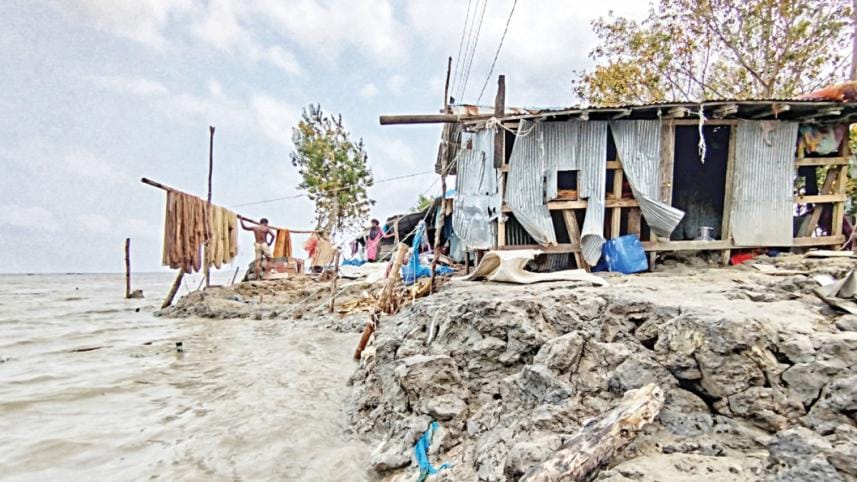Building resilience: Asia’s sustainable development imperative

Asia has long been heralded as a beacon of progress in poverty reduction, lifting 1.5 billion people out of extreme poverty within just two generations. Yet, this remarkable achievement cannot mask the region's remaining challenges. About 692 million people remained trapped in extreme poverty in 2024, living on less than $2.15 a day. Projections suggest that 266 million more could fall into poverty by 2040. Climate change compounds these vulnerabilities, leaving communities in Asia, the world's most disaster-prone region, grappling with recurring crises.
In the face of these challenges, sustainable infrastructure, climate action, and resilient health systems emerge as pillars of hope. These interconnected priorities are not merely aspirational—they are essential for securing the region's hard-earned progress and ensuring a future where no one is left behind. And I have witnessed how transformative projects across Asia and the Pacific bring the promise of sustainable development to life.
From typhoons to floods, Asia's exposure to climate-related disasters is unparalleled. In 2023 alone, the region endured the highest number of weather, climate, and water-related hazards globally, according to the World Meteorological Organization. The impacts of these disasters are devastating, both in human and economic terms. Bangladesh, ranked seventh on the Global Climate Risk Index 2021, exemplifies the stakes. In the country, Cyclone Remal and recurrent floods have left over 18 million people affected, with six million in urgent need of assistance. Coastal erosion, rising sea levels, and intensifying cyclones further threaten the livelihoods of millions.
In Bangladesh's southwest Satkhira district, the European Union-funded, UNOPS-managed Lives in Dignity Grant Facility has supported vulnerable communities affected by climate displacement. Between 2022 and 2024, two partners, Uttaran and Educo, worked alongside communities and authorities to strengthen resilience, improve access to sanitation, water and income opportunities, and enhance disaster preparedness, management, and adaptation for some 7,000 people. By acting as a catalyst for collaboration and enabling communities to lead adaptation efforts, this initiative highlights how these integrated, locally driven solutions can help vulnerable populations rebuild and thrive.
Sustainable development cannot succeed without robust health systems. The Covid pandemic underscored the importance of accessible, resilient health infrastructure. Yet, many countries in Asia still face significant gaps in healthcare delivery, exacerbated by climate-related disruptions. Investing in health infrastructure—from hospitals to clean water systems—is essential not only for improving public health but also for enhancing communities' ability to withstand shocks.
At UNOPS, we take pride in supporting initiatives that align infrastructure investments with the Sustainable Development Goals (SDGs), driving sustainable progress and lasting impact. For example, we have worked with the Bangladesh government and the Global Fund to procure and install 29 oxygen plants across district and rural (upazila) hospitals. This project, valued at over $16 million, strengthens Bangladesh's healthcare infrastructure with a sustainable, local supply of medical oxygen, reducing the country's reliance on external suppliers. These oxygen plants provide oxygen at a fraction of the cost—17 to 22 times lower than cylinder-based supplies—enabling tens of thousands of patients to receive life-saving oxygen therapy every day and benefitting over 8.2 million people annually. This initiative also enhances emergency preparedness, ensuring hospitals are ready for surges during public health crises or natural disasters. Such projects show us that true development is not just about growth, but about building the strength to endure, ensuring every community is prepared for the challenges of tomorrow.
Another critical challenge for sustainable development in Asia is plastic pollution. The Plastic Free Rivers and Seas for South Asia (PLEASE) project, funded by the World Bank and implemented by the South Asia Cooperative Environment Programme (SACEP) with UNOPS support, exemplifies how regional collaboration can drive impactful solutions. Covering all eight South Asian nations, including Bangladesh, this initiative fosters circular economy innovations to reduce plastic waste entering our oceans. UNOPS contributions—from project management and procurement to infrastructure support—have been instrumental in promoting knowledge-sharing, building partnerships, and advancing best practices in plastic waste management.
In addition to supporting grant investments for circular solutions, UNOPS facilitated the construction of SACEP's green headquarters, incorporating sustainable design principles that reflect the project's environmental ethos. By addressing the root causes of plastic pollution and equipping communities with the tools to adopt sustainable practices, the PLEASE project aligns with broader global efforts to protect our ecosystems and combat climate change.
Bangladesh's vulnerabilities to climate change and its commitment to sustainable development hold valuable lessons for the broader region. The Lives in Dignity Grant Facility's innovative approaches, such as climate-smart agriculture and livelihood diversification, demonstrate the importance of tailoring solutions to local contexts. Community ownership, continuous capacity-building, and integrated strategies that address immediate needs while fostering long-term resilience are critical to success.
Similarly, regional initiatives like the PLEASE project highlight the importance of collaboration and innovation in addressing shared challenges. By leveraging partnerships with public, private, and civil society actors, we can maximise impact and drive sustainable solutions at scale.
Asia's path to a sustainable future hinges on bold climate action, resilient infrastructure, and stronger health systems. For countries like Bangladesh, investing in these areas is critical to protecting progress and unlocking new opportunities. By combining global expertise with local innovation, we can drive real impact, creating a future where communities don't just adapt, but thrive.
Kirstine Damkjaer is assistant-secretary-general at the United Nations and deputy executive director of Delivery and Partnerships at the UN Office for Project Services (UNOPS).
Views expressed in this article are the author's own.
Follow The Daily Star Opinion on Facebook for the latest opinions, commentaries and analyses by experts and professionals. To contribute your article or letter to The Daily Star Opinion, see our guidelines for submission.



 For all latest news, follow The Daily Star's Google News channel.
For all latest news, follow The Daily Star's Google News channel. 
Comments